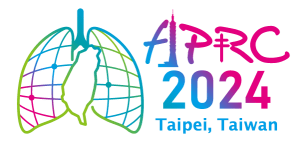Symposium 15:Recent Progress of Lung Cancer Treatment
In recent years, the progress of lung cancer treatment in every fields is amazing. There are so many practicing change clinical trials and so many new entities been approved. In addition, the progress in driver mutation detection also bring the era of personalized therapy. The physicians care about the pulmonary diseases should also be familiar with those great progresses.
| Time (GMT+8) |
Topic | Speaker | Country / Region |
|---|---|---|---|
| 08:30-09:00 | Recent advances in immunotherapy of early stage lung cancer | Dr. Chao-Hua Chiu | Taiwan |
| 09:00-09:30 | Recent Advances and the Dawn of Antibody-Drug Conjugates in lung cancer | Prof. Chien-Chung Lin | Taiwan |
| 09:30-10:00 | Recent Advances in Targeted Therapies of Lung Cancer | Dr. Ching-Yao Yang | Taiwan |
Recent advances in immunotherapy of early stage lung cancer
Abstract:
Immune checkpoint inhibitors, such as anti-PD-1/PD-L1 and anti-CTLA-4 agents, have substantiated their efficacy as therapeutic modalities for metastatic lung cancers over the past 10 years. The first checkpoint inhibitor, pembrolizumab, obtained FDA approval in 2014 as a second-line treatment in non-small-cell lung cancer (NSCLC). Subsequently, in conjunction with other agents such as nivolumab and atezolizumab, these anti-PD-1/PD-L1 inhibitors expeditiously transitioned to the forefront of initial treatment, markedly altering the landscape of the management for metastatic NSCLC patients. On the other hand, for locally advanced NSCLC, Durvalumab, another anti-PD-L1 agent, has demonstrated a remarkable overall survival advantage in stage III NSCLC following standard concurrent chemoradiation. In 2021, the pivotal phase III trial, Checkmate 816, revealed that a chemoimmunotherapy regimen administered for three cycles prior to surgical intervention in stage II and III NSCLC patients yielded a pathological complete response rate (pCR) of 24.1%, contrasting with the 2.2% pCR rate observed with chemotherapy alone. Subsequently, a substantial increase in disease-free survival (DFS) was ascertained, aligning with expectations. Concurrently, atezolizumab also showed a significant DFS benefit subsequent to standard post-operative chemotherapy. In 2023, multiple perioperative chemoimmunotherapy investigations, entailing the administration of immunotherapy both before and after surgery, collectively elucidated a pCR rate alongside prolonged DFS which faithfully reproduced the prior clinical trials results. Nonetheless, due to the limited follow-up duration, none of the aforementioned studies have thus far demonstrated an overall survival benefit for patients. In summary, the role of immune checkpoint inhibitors across various stages of NSCLC has been unequivocally established. In early-stage lung cancer, immune checkpoint inhibitors manifest a highly promising potential to enhance the curative prospects for resectable lung cancer, marking a paradigm shift in the history of lung cancer therapeutics.
Dr. Chao-Hua Chiu

Taiwan
Recent Advances and the Dawn of Antibody-Drug Conjugates in lung cancer
Abstract:
The historical origins of antibody-drug conjugates (ADCs) can be traced back to the early 20th century when Paul Ehrlich envisioned a more targeted delivery of anticancer therapy known as the magic bullet. ADCs consist of three essential components: an antibody directed against a tumor-associated antigen, a linker, and a cytotoxic payload. The rationale behind ADCs is to selectively target cancer cells, delivering concentrated cytotoxic payloads through an antibody-mediated process that minimizes harm to normal tissue while maximizing damage to tumors. An ideal ADC should demonstrate stability in blood circulation, accurately reach the therapeutic target, and release cytotoxic payloads in cancer cells. The efficacy and safety of ADCs are influenced by the selection of the target antigen, antibody, cytotoxic payload, linker, and conjugation methods. Since 2020, the FDA has approved the first ADC for non-small cell lung cancer (NSCLC) patients, namely trastuzumab deruxtecan. However, ADCs have both on-target and off-target toxicities, with the latter prevailing and seemingly linked to the nature of the payload and its release in circulation and normal tissue. Meanwhile, resistance mechanisms to ADCs are multifactorial such as involving antigen downregulation or loss, alterations in intracellular trafficking or lysosomal drug breakdown, and upregulation of ADP-binding cassette transporter proteins in tumor cells. In this presentation, we will discuss the structure and mechanism of action of ADCs, drawing insights from pre-clinical work. We will provide a summary of recent progress in ADC application for lung cancer, describe ADC toxicity profiles, and address potential resistance mechanisms.
Prof. Chien-Chung Lin

Taiwan
- Professor, Department of Internal Medicine, College of Medicine, National Cheng Kung University, Tainan, Taiwan.
- Institute of Clinical Medicine, College of Medicine, National Cheng Kung University (Part-Time Faculty).
- Institute of Molecular Medicine, College of Medicine, National Cheng Kung University (Part-Time Faculty
- Director, Taiwan Association for the Study of Lung Cancer
Recent Advances in Targeted Therapies of Lung Cancer
Abstract:
Molecular targeted therapy stands out as the major breakthrough in the treatment of advanced non-small cell lung cancer (NSCLC) over the past decade, particularly in adenocarcinoma histology. Tumors with specific driver mutations typically exhibit a remarkable response to relevant targeted therapies. Therefore, the identification of druggable driver mutations in advanced NSCLC has become a pivotal step in contemporary lung cancer management.
Currently, there are nine FDA-approved targeted therapies for lung adenocarcinoma, targeting driver oncogenes such as EGFR, ALK, ROS1, BRAF, KRAS, RET, MET, ERBB2, and NTRK. For tumors lacking identifiable driver oncogenes, a distinct category emerges—high PD-L1-expressing lung cancer. This subset demonstrates a positive response to immune checkpoint inhibitors that target the PD-1/PD-L1 axis.
In this talk, we will provide a brief overview of recent advances in lung cancer treatment, with a specific emphasis on targeted therapies.
Dr. Ching-Yao Yang

Taiwan
Specializing in pulmonology, Dr. Yang spent four years as an ICU attending physician before dedicating his career to the diagnosis and treatment of lung cancer. His research focuses on PD-L1 expression in early lung cancer, advanced lung cancer with driver mutations, and immune microenvironments in lung cancer.
As a key member of lung cancer multidisciplinary teams, Dr. Yang actively participates as a co-investigator in clinical trials. This reflects his commitment to advancing medical knowledge and improving patient outcomes in lung cancer treatment.
Prof. Jin-Yuan Shih

Taiwan
Education: Graduated from College of Medicine (1985-1992), and Graduate Institute of Clinical Medicine (1997-2002), National Taiwan University
Professor, Graduate Institute of Clinical Medicine, College of Medicine, National Taiwan University (2013-Aug)
Professor, Department of Internal Medicine, College of Medicine, National Taiwan University (2012-Aug)
Visiting Physician, Division of Pulmonary and Critical Care Medicine, Department of Internal Medicine, National Taiwan University Hospital (1999-July)
1991-1992 Rotating intern in National Taiwan University Hospital
1992-1995 Resident, Department of Internal Medicine, National Taiwan University Hospital
1995-1997 Fellow, Division of Chest Medicine, Department of Internal Medicine, National Taiwan University Hospital
1997-1999 Visiting Physician (Pulmonologist), Department of Internal Medicine, En Chu Kong Hospital
1999- Visiting Physician, Pulmonary and Critical Care Section, Department of Internal Medicine, National Taiwan University Hospital
2000-2002 Clinical Lecturer, Department of Internal Medicine, College of Medicine, National Taiwan University
2002 -2006 Clinical Assistant Professor, Department of Internal Medicine, College of Medicine, National Taiwan University
2004 -2005 Visiting Scientist, Department of Molecular and Cellular Oncology, The University of Texas, MD Anderson Cancer Center
2006-2010 Clinical Associate Professor, Department of Internal Medicine, College of Medicine, National Taiwan University
2011-2012 Associate Professor, Department of Internal Medicine, College of Medicine, National Taiwan University
2013-2019 Chief, Division of Pulmonary and Critical Care Medicine, Department of Internal Medicine, National Taiwan University Hospital
2016-2019 Deputy Director, Department of Medical Research, National Taiwan University Hospital
1. Internal Medicine
2. Thoracic Oncology
3. Pulmonary Medicine
4. Molecular and Cellular Biology
1. Member of the Formosan Medical Association
2. Member of the Taiwan Society of Internal Medicine
3. Member of the Taiwan Society of Pulmonary and Critical Care Medicine
4. Member of the Taiwan Lung Cancer Society
5. Member of the Asian Pacific Society of Respirology
6. Member of the European Respiratory Society
7. Member of the International Association for the Study of Lung Cancer
8. Member of the Society for Immunotherapy of Cancer
9. Member of the Taiwan Association for the Study of Lung Cancer
10. Member of the European Society of Medical Oncology
11. Member of the American Soceity of Clinical Oncology
2002: The 12th Annual Wang Ming-Ning award.
2006: Japanese Respiratory Society/ATS/ERS/APSR : Young investigator award
2006: Ta-You Wu Memorial Award, National Science Council, Taiwan
2006: The 11th congress of the APSR; JRS young investigator travel fellowship
2008: Medical Award, Chin-Sing Medical Foundation
2010: Outstanding Research Award for Excellence in Medical Research, National Taiwan University Hospital
2011: Outstanding Research Award, National Science Council, Taiwan
Dr. Kang-Yun Lee

Taiwan
Dr. Kang-Yun Lee is Professor of Internal medicine and Vice President of Taipei Medical University (TMU). He also heads the Asthma Assembly of Asian Pacific Society of Respirology. Dr. Lee qualified his first degree of Medicine at TMU and received a PhD in clinical pharmacology at Imperial College London in 2006.
Dr. Lee had been working on pathogenesis of asthma, COPD, and lung cancer. In addition to clinically orientated research, he has been working on molecular control of inflammation and immunity in lung diseases. He is interested in microenvironment and immune therapy for lung cancer. His lab identified a novel myeloid-derived suppressor cell (MDSC) in lung cancer, which has been implicated in tumor aggressiveness and drug resistance. Dr. Lee also participates in a great number of clinical trials, in variable lung diseases, including airways diseases, lung cancer and pneumonia.
Dr. Chun-Liang Lai

Taiwan




